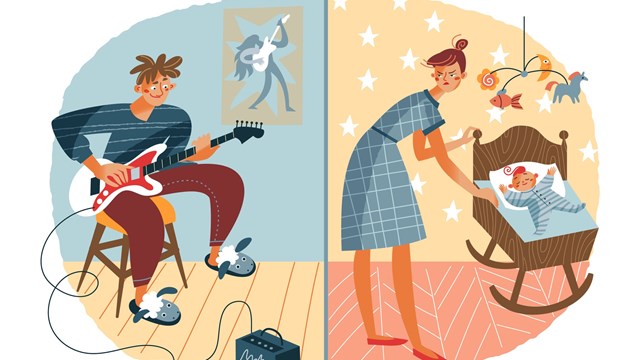
Q. I live in a condo in which the majority of the residents are older or active adult age, but we do have several families with small children as well, which sometimes has led to issues with noise. This hasn't been an issue for me until last year, when a family with young toddlers moved into the unit above me. Since then, the kids have been running, screaming, crying and just creating a nuisance at all hours of the day and night. The parents seemingly have little control over their offspring and prefer keeping them in the house rather than taking them outside to blow off some steam. I've complained to our property manager, and other owners have done the same. The parents were sent a letter asking them to rein in their kids and keep it down. The noise stopped temporarily, but now it is back with a vengeance. My question is, what do I do next? What is the next step to ensure that these owners follow our association's noise rules? Can an attorney help me?
—Too Loud in Lincoln Park
A. According to attorney Mark Rosenbaum of the Chicago-based law firm of Fischel & Kahn, Ltd., “Many declarations, by their terms, prohibit excessive noise. And if nothing else, almost every declaration has a 'use and occupancy' provision that prohibits actions that are an annoyance or nuisance to others. But the bottom line is that you and your association board each have a role to play in solving this problem.
“Also, many associations have rules that require 'quiet hours' or otherwise deal expressly with excessive noise. Many associations also have provisions on floor soundproofing (like carpeting), which might help with the kids’ jumping around.
“As with any possible violation of the condominium instruments or rules, you need to look at your association’s own rules to determine the way to formally make a complaint to the association on the issue. Many associations will not take any action unless the formal process is followed. That may mean filing a written complaint, and possibly making yourself available to attend a hearing on your complaint.
“Assuming you follow the process required to make a formal complaint, your association board has the obligation to take your complaint seriously and to take steps to enforce its own documents. The most effective remedy is often to fine the persons who have violated the documents. The board has the power, after giving the persons against whom you are complaining notice and an opportunity to be heard, to issue a reasonable fine against them if the board finds the complaint to be justified. See IL Condominium Property Act, Section 18.4(l). Such a hearing will reinforce the fact that the board is taking the matter seriously and that the board is willing to take affirmative steps to enforce the condominium documents and rules. Many associations have other rules that spell out the hearing process. And some associations have a sliding scale of fines for multiple violations of the same provisions, increasing the amount of a fine for a 2nd, 3rd or more violations. It is even possible for there to be other, more serious, remedies available to the association if the problems continue.
“Having said all the above, you must remember that small children do not always behave well. Even the best of parents may have trouble getting young children to conform to community living norms. A board may give the parents more leeway on the noise issue than it would give to adults who, for example, throw loud parties repeatedly. Most children grow out of the noise issues you mention. But even so, taking the step of getting your board formally involved should reinforce to the parents the need to work harder to allow their neighbors to have some peace and quiet.”









Comments
Leave a Comment